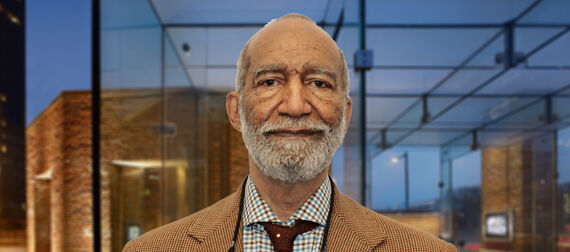People in Northern Liberties are talking about it. In Queen Village and Bella Vista, too, people are raising the issue. Some people in University City are downright mad about it. Even in Fishtown you can now hear the word being whispered. Gentrification.
We all know what happens when a neighborhood gets gentrified, right? Yuppies move in, gussy up the neighborhood, raise rents and housing prices, and as a result working-class people and the working poor get forced out, right?
Maybe. Perhaps we don't really know what we think we know about "gentrification." According to a study of gentrifying neighborhoods in New York City done by a Columbia University professor and the nonprofit Citizens Housing and Planning Council, poor and working-class residents in gentrifying neighborhoods were 15 percent less likely to move out than residents with similar socioeconomic profiles in other neighborhoods in the city. Further north, Jacob Vigdor, an economist at Duke University, found virtually the same thing in his study of gentrifying neighborhoods in Boston.
In both New York and Boston, it turns out -- surprise, surprise -- that poor and working-class residents like cleaner, safer streets and more commercial and retail opportunities, and they are willing to pay more to enjoy better neighborhoods.
Philadelphia, of course, has experienced considerably less real estate pressure than either Boston or New York, and so we might expect to find even more residential stability should someone study the question in Bella Vista or Fishtown. After all, homes and apartments in this town go for less money than they do in New York and Boston. You'd be lucky to find a studio in Park Slope, one of the sections of New York studied by the Citizens Housing and Planning Council, for what you pay for a three-bedroom in gentrifying University City.
What we do know, thanks to the ongoing research of Penn's Dennis Culhane, is that there is a crisis of affordable housing in Philadelphia. That crisis is responsible, in turn, for a rise in homelessness. No wonder poor and working-class residents, and their allies, turn their hostility toward their new, upwardly mobile neighbors.
But perhaps portraying the crisis of affordable housing as a pitched battle between gentrifiers and poor people is one of those proverbial false dichotomies. It is a dichotomy that comes from the premise that the stock of housing in livable neighborhoods is a finite -- indeed, shrinking -- resource, and thus the fight for this precious commodity as a Darwinian class struggle.
That premise must change. Let's start by asking why, in a city with thousands of empty housing units and even more land available to build on, there is not enough affordable housing. Let's look at some structural issues that have kept the housing market stagnant citywide and have thus contributed to a false scarcity of affordable units.
Let's say you want to build affordable housing, or rehab a block of abandoned rowhouses for the same purpose. The process you will have to go through to get that real estate can take nearly two years and involves more than a dozen stops in the city's Byzantine bureaucratic maze. Further, should you venture down this thorny path, as we know all too well, the first question you will be asked is, "How much will you contribute?"
The process of acquiring land for development is considerably easier and faster in other cities -- Cleveland, for example -- and Mayor Neighborhood promised to streamline the process here as part of his Neighborhood Transformation Initiative.
To date, he hasn't done a thing to change the way business is done. Who knows how many small-scale developers have simply walked away from this city holding their noses?
The point needs to be reiterated: The city's bureaucracy and City Hall's pay-to-play rules stifle small-scale projects; after all, if you're doing a multimillion dollar project, you can afford all the lawyers you need to grease City Hall's palms.
Should you persist, however -- pay off all the right people and navigate the Class 5 rapids of City Hall -- you will find yourself set on by another flock of vultures in the form of the construction unions. As is well known, these guys run a near-perfect monopoly on all building within city limits. They do what monopolies of any kind always do: gouge, cheat and otherwise extort.
As a consequence of this monopoly, your development will cost you as much as 50 percent more to build in the city as in the suburbs, where the unions have to compete for work. If you're building a multimillion-dollar luxury apartment tower, you can probably afford to eat these costs. If you're trying to build 20 units for low-income seniors, you can't. So you don't build them at all.
The city can and should be big enough to provide affordable housing for those who need it, and to let that yuppie couple buy the fixer-upper down the street. Rather than turning neighbors against each other, let's recognize the bigger forces at play and work to change them.


